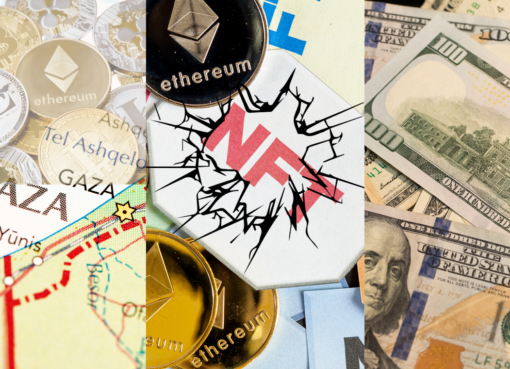A volte-face by South Korean President Yoon Suk-yeol’s administration when it comes to long-standing government apathy toward the country’s gaming industry is forcing it to stick to overseas markets.
In his election campaign, President Yoon had promised to abolish the ban on the play-to-earn (P2E) industry in the country and enact regulations that would encourage the wider gaming industry that is increasingly developing blockchain-based titles. But that promise was omitted from his final election manifesto towards the end of the election.
“The president has not mentioned [P2E] since,” Dongyang University’s Kim Jung-tae told Forkast. “And the minister of culture repeats the same quote like a parrot — saying we need to take a careful and comprehensive approach,” the professor of gamification at the private university said.
“The game industry and academics are [left speechless],” Kim said. “We had several blockchain game models four or five years before the success of Axie Infinity,” the professor said, referring to the blockbuster P2E game developed by Sky Mavis Pte. Ltd.
“What’s the reason? I can assure you … they still perceive games negatively,” the professor said.
Gaming is viewed by the old guard in South Korea as a distraction from a national obsession with improving grades and moving up in life. This has meant the country’s game development industry, widely perceived as a powerhouse, has struggled to make inroads into its home market.
In 2011, Seoul enacted the Shutdown Law, banning under-16 players from online games between midnight to six in the morning. While the law has been abolished this year, the critical view of the industry remains.
Play-to-earn has an especially bad rap in South Korea due to perceived similarities with previous examples of players being rewarded for game play.
See related article: Popular NFT games made in South Korea, and banned in South Korea
South Korea’s Game Rating and Administration Committee does not allow any blockchain-based games from being released domestically, due to concerns over speculative behaviors.
The concern originates from the Sea Story debacle in 2005 where the slot machine arcade game that rewarded players gift certificates led to the creation of an underground economy affiliated with local gangs. The betting behavior that the game stoked led to dozens taking their own lives, shocking a country with a strict no-gambling policy.
See related article: Blockchain game MIR4 gains global popularity despite ban at home in South Korea
Keeping up with the times
Despite the stigma, gaming and esports remain highly popular in South Korea.
A little over 71% of the country’s population are gamers, according to estimates by the Korea Creative Content Agency (KOCCA) This is higher than the estimated 65% of the population in North America that’s into gaming.
The KOCCA study showed about 11% of South Korea’s population visit “PC bang,” a computer center that charges visitors an hourly fee to mostly play online video games, more than once a week.
Though the professor does not advocate carte blanche to the industry, some institutional recognition could help sustainable P2E titles with tapping the domestic market, Kim said.
This has come as game developers increasingly turn to blockchain technology to develop new titles.
South Korean game developers started turning to blockchain and play-to-earn titles as early as 2017. But strict regulations against cryptocurrencies and blockchain technology, including a ban on initial coin offerings (ICOs) that would help smaller studios develop new titles, held back the country’s industry.
That looked to change with the success of Axie Infinity.
Since being released in August 2021, massively multiplayer online role-playing game (MMORPG) game MIR4, developed by South Korea’s WeMade Co., Ltd., regularly ranks among the top 20 games globally played on Steam, a digital distribution service for video games.
The company also unveiled two more blockchain games in the first quarter of this year, helping prop up first-quarter sales to 130 billion Korean won (US$99.3 million), a 72% increase from the same period last year.
This has led to South Korea’s top 10 gaming companies, including Com2uS, Kakao Games and Krafton, having announced plans to release blockchain-based games in the near future. Domestic market leader Nexon joined the race last month by revealing a new project that merged non-fungible tokens (NFTs) with its popular two dimensional role-playing game (RPG) MapleStory, which has 1.3 billion players globally.
“As someone in the industry, I can tell you it’s highly likely that blockchain games will be acknowledged as a [proper] genre,” a spokesperson for Netmarble Corp., told Forkast in an email interview. Netmarble adopted P2E elements in two of its games – A3: Still Alive and Cross Worlds, the spokesperson for one of South Korea’s most profitable game companies said.
See related article: S.Korean gaming giant Netmarble to issue own cryptocurrency
Netmarble will help to build an ecosystem where user participation is driven by “reasonable compensation,” helping create a virtuous cycle, the spokesperson said. “We think blockchain games are sustainable if they are based on ‘entertainment,’ the essence of gaming,” the spokesperson added.
Promised lands
But with no signs of a thaw in the official stance, Korean gaming majors are sticking to a tried-and-tested mantra.
MIR4 developer WeMade posted record earnings last year with the global success of the P2E role playing game, especially in the Philippines. Overseas sales contributed about 180 billion Korean won (about US$136.7 million) or more than half of total sales.
The company had set its eyes on the global market right from the beginning while developing the blockchain game platform, a spokesperson for WeMade told Forkast in an email.
“Domestic circumstances will not be a reason to start or stop the business,” the spokesperson added.
The first and second quarter this year witnessed the launch of multiple P2E titles by major developers. The industry as a whole earned US$8.1 billion in exports in 2020, or more than 70% of total exports in the content production industry that year, according to South Korea’s Ministry of Culture, Sports and Tourism.
In addition to diversifying content and building a sustainable token economy, Korean game companies will gain competitiveness by expanding global partnerships, the Netmarble spokesperson told Forkast.




